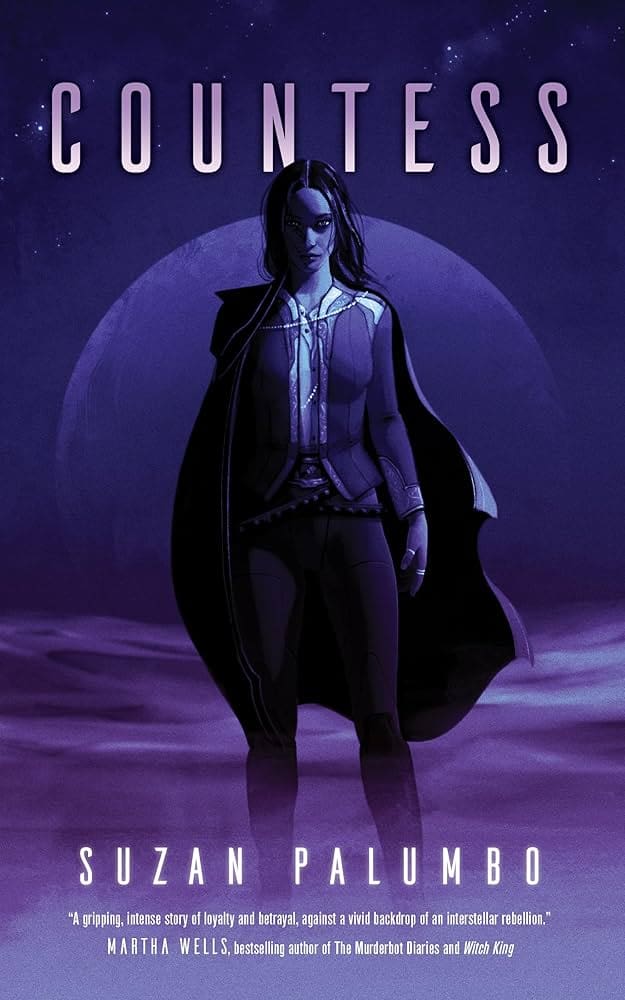
Synopsis
A queer, Caribbean, anti-colonial sci-fi novella, inspired by The Count of Monte Cristo, in which a betrayed captain seeks revenge on the interplanetary empire that subjugated her people for generations.
Virika Sameroo lives in colonized space under the Æerbot Empire, much like her ancestors before her in the British West Indies. After years of working hard to rise through the ranks of the empire’s merchant marine, she’s finally become first lieutenant on an interstellar cargo vessel.
When her captain dies under suspicious circumstances, Virika is arrested for murder and charged with treason despite her lifelong loyalty to the empire. Her conviction and subsequent imprisonment set her on a path to justice, determined to take down the evil empire that wronged her, all while the fate of her people hangs in the balance.
Quick Review
Countess re-imagines The Count of Monte Cristo as a queer anti-colonial sci-fi novella. The result is a fast-paced story of betrayal and revenge which had me hooked from the beginning.
Full Review
Countess carries with it many of the same themes present in Palumbo’s prior short story collection, Skin Thief: loss of home and identity, the family you make along the way, and a need to fight for equality in an unjust system. Here, in her latest story, she takes these themes into space, but the events that unfold here are still deeply rooted in our history. The Exterran Antilles, a group of space-faring people originally from the Antilles archipelago, have found themselves as workers under the heel of the Æcerbot Empire. They are independent on paper, but crushed for even the slightest resistance against their corporate and authoritarian neighbors.
Leaving the Exterran Antilles and migrating to the empire is treated as “winning the lottery.” In doing so, the “winners” have to give up everything and become loyal to the Æcerbot Empire and their customs—even down to the religion you follow. All of this is explained in the beginning of the book, making chapter one a bit dense with information, but once you’re over that hump things are smooth sailing.
This is where we find our protagonist, Virika Sameroo. She’s an accomplished lieutenant, and rises to the rank of captain, the first Exterran Antilles migrant to do so. However, after the Æcerbots link her to a murder, her arrest is swift. Virika is branded a traitor and tossed in a prison to die.
Countess is only about 160 pages, so all this happens very quickly. While in prison, years pass over the course of a few pages. This rapid pace is my one critique of Palumbo’s novella. I would have liked to have another scene or two with some characters like Virika’s mother, Alba, and Dominique, each of whom were very important to this story but in some cases we only got a scene or two with them.
Similarly, Virika’s transition from a cog in the Æcerbot Empire to actively fighting against them appears to happen rapidly, even though technically it’s taking place over about ten years while she’s their prisoner.
All that said, I think Palumbo handled the rapid pace in Countess very well. We’re offered little reminders about how much time has passed, and glimpses of the moments between major events. There is downtime as well, such as when Virika visits her mother for dinner or when she’s getting familiar with the crew of the Pomerac. These are some of my favorite scenes in the book.
Skin Thief was one of my favorite books that I read last year, and Countess was nigh impossible to put down over the course of my holiday break. The ending had me in shambles, but in a good way.
I strongly recommend Countess, and can’t wait to see whatever Suzan Palumbo comes up with next.









Leave a Reply